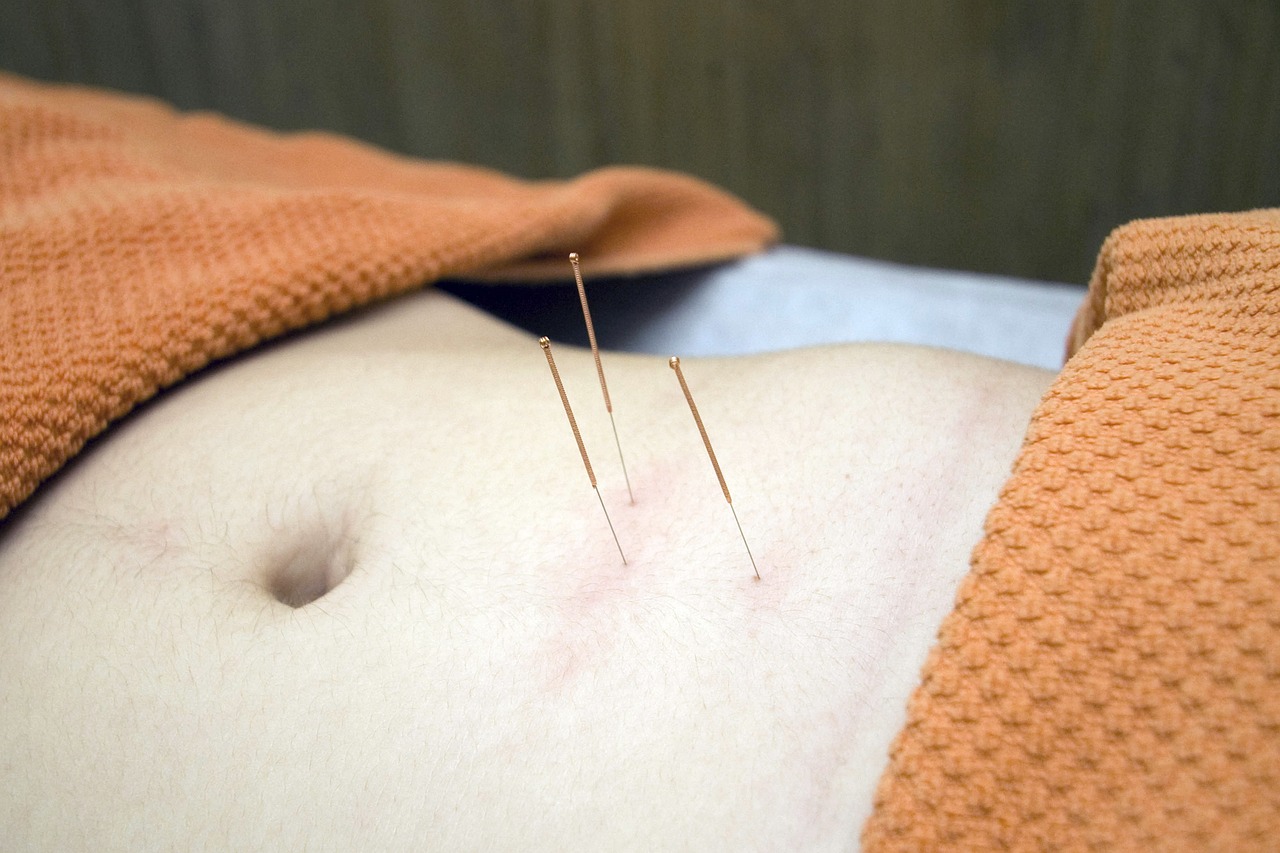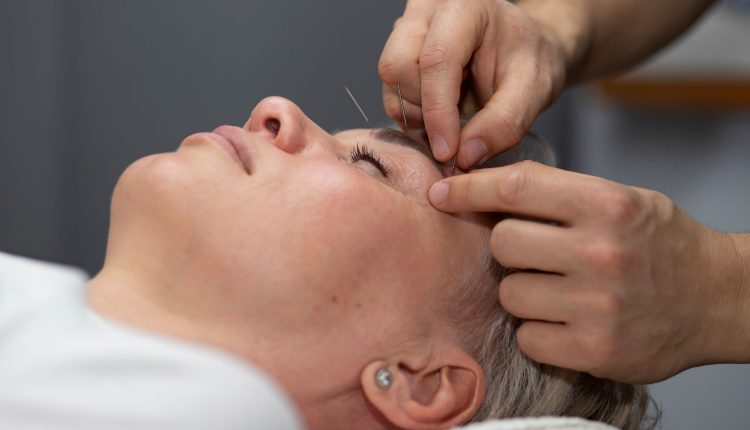THE BENEFITS OF ACUPUNCTURE FOR STRESS MANAGEMENT

What is pain? A lot of people are more afraid of pain than of death. This is because you can definitely feel the latter. Pain is not really a product of your imagination. It’s a sensation that is being triggered by your nervous system.
Pain can range from dull to very sharp, from mild to highly severe. It can also be intermittent or continuous. Either way, pain is a very unpleasant feeling, and you want to get rid of it as soon as possible.
One of the best ways is to go through pain acupuncture. One of the main reasons for the development of acupuncture is to alleviate the symptoms or pain that are usually associated with wide varieties of diseases or disorders.
What Are the Benefits of Acupuncture for Pain?
Acupuncture for pain offers a number of advantages to patients. For one, it’s a completely non-invasive procedure. When one has got through a number of operations or surgeries, acupuncture therefore is welcome change.
Though needles are used, they are not painful at all. They are also too thin that they can get through the skin easily. You may feel a little pinch at times, but it won’t last long.
Some patients may report bruises or mild bleeding, but these seldom happen. As long as you work with a professional acupuncturist, these worries can be put behind your mind. They can also adjust the manner of needle insertion to suit your needs or preferences.
It doesn’t also get in the way of your daily activities. A number of procedures can require a rest day, but pain acupuncture doesn’t. As long as you don’t feel the pain again after the treatment, you can go about the things you have to do for the rest of the day.
It can work together with other modes of treatment. It complements rather than contradicts. For instance, you can combine Chinese herbs and acupuncture, or you can mix acupuncture with Western mode of pain management, which may include medications. Acupuncture doesn’t have any side effect.
Where Does Pain Acupuncture Works?
Acupuncture for pain has been considered effective for lower back aches. In fact, a lot of conventional physicians would recommend acupuncture if the Western treatments don’t really work out for them. Moreover, it becomes more effective if the procedure is combined with conventional method of treating back pain.
It can also help patients manage osteoarthritis or knee pain more efficiently. You can see a great improvement on the movement of the joints.
Pain acupuncture can also relieve a person who is suffering from headaches caused by stress, tension, migraines, neck arthritis, and many others. Some have said that their headache was virtually gone after the treatment, or the pain has dramatically lessened.
When you can no longer sleep because of the pain, you can depend on acupuncture to help you out. It can also promote better circulation of the blood all throughout the body and stimulate the central nervous system to function well. Most of all, it helps release endorphins, hormones that help combat physical pain.
Stress Management Techniques From Mind Tools
Most of us can attest to the fact that stress is reaching epidemic proportions in modern society. Balancing work, family, health, money, etc. is a challenge that many of us feel ill equipped to face. Eighty percent of the doctor visits in our country are stress related. Our quality of life and health is largely determined by how we adapt and relate to daily stressors. Here are a few ancient techniques for eliminating stress, increasing energy, and creating emotional balance. These are some of the most powerful tools we have for achieving optimal health and preventing future disease.
1) Meditation: Practiced for thousands of years in many Asian cultures, meditation has long been recognized as one of the most powerful tools we have for cultivating peace of mind and balance. Numerous studies have proven the incredibly positive effect that meditation has on stress reduction. There are literally hundreds of meditation techniques taught around the world. For beginners, the most helpful approach is to start with basic mindfulness techniques that develop both relaxation and alertness. Once a basic ground of awareness has been stabilized, then more advanced meditation practices can be undertaken.
2) Yoga: This ancient practice has also been utilized by millions of people throughout history. Yoga is typically considered a form of meditation that involves putting the body into a variety of poses in combination with deep breathing to induce mental clarity, increased energy, and physical strength and flexibility. The healing benefits of yoga have been repeatedly documented by a variety of clinical studies. There are many forms of yoga and it is best to experiment to determine which form feels the most helpful for your needs.
3) Acupuncture: One of the pillars of traditional Chinese medicine, acupuncture has been practiced for at least 2,500 years. Perhaps one of the last truly holistic forms of healthcare remaining on the planet, acupuncture works with the Qi (life force ) of the body in order to induce a variety of therapeutic effects. The safety and efficacy of this practice are well documented which accounts for its incredible surge in popularity in the Western world. Acupuncture is considered one of the most powerful treatment options for stress reduction. Only seek acupuncture treatment from licensed acupuncturists ( as opposed to chiropractors or MD’s who practice acupuncture).
4) Herbal medicine: There are a variety of both Chinese and Western herbal formulas that have been clinically proven to reduce stress and create emotional balance. Herbs are much less concentrated than pharmaceuticals, which is why they have far less side effects (but can still be as effective). If you are interested in this treatment option, many acupuncturists can skillfully prescribe herbal formulas. This is recommended over buying herbs over the counter with little knowledge of their intended usage.
5) Nutrition: Eating a diet high in antioxidants, essential fatty acids, and low glycemic carbohydrates can go a long ways in healing stress. The standard American diet (high in processed foods, saturated fat, sugar, and transfats) has been linked to anxiety, depression, and increased stress in numerous studies. Change your diet to an organic, whole foods approach and both your body and mind will reward you beyond measure.
Acupuncture for Relieving Chronic Pain
Many people learn to live with chronic pain and do not consult a specialist to help relieve the daily ailments. In some cases, ignorance of the pathology or the widespread belief that aging means to live with pain, many do not receive the appropriate treatment capable of subtracting pain, slow the evolution of the pathology and, therefore, improve their quality of life.
Currently, we are living in a new era in medicine, since the alternative medicine is added to the traditional medicine, which combined to achieve better results in the inhibition of chronic pain. One of those techniques, which is gaining adherents every day, is acupuncture.
Acupuncture is effective in 49 diseases and disorders
This traditional Chinese technique arises from the conception of the body as a network of interconnected points through which energy flows. When there is a blockage or stagnation of that energy in the canal, it is when the pain occurs.
The acupuncture is to stimulate anatomical locations on the skin through the insertion of thin metal needles. Their placement in specific areas of the body called acupuncture points, allow better electrical conduction which is capable of provoking biological responses in the patient. In this way, they (acupuncturists) provoke stimuli in the nervous, hormonal and immune system that manage to restore the body to a state of equilibrium.
Such is its effectiveness, that the World Health Organization has described this technique as an effective option against pain. In addition, it is effective in at least 49 diseases and disorders. Especially, it has demonstrated great benefits in the treatment of low back pain, postoperative pain, and fibromyalgia, neuropathic, joint and musculoskeletal pain. It also acts on hormonal and nervous system levels.
Although it is a simple and painless technique, it is not completely innocuous, special care should be taken in pregnant patients, in infected areas, patients with blood clotting problems or serious neurological or psychiatric disorders. Even so, it is necessary to go to the pain specialist beforehand, who will determine the suitability of alternative medicine in the case of each patient.
Benefits of Acupuncture
Acupuncture has been shown to have benefits in the treatment of chronic pain, but also in many other aspects, such as improvement in physical recovery, digestion or reduction of stress, anxiety, and depression. It has also been seen as improving the circulation of blood since it regulates the blood flow favoring the contribution of nutrients and oxygen in the body.
This method of traditional Chinese medicine has been used for several years in different hospitals throughout Europe and U.S and has already begun to be implemented in some centers in the Middle East for treating chronic pain and improve the quality of life of patients.
Medications are often not enough to treat chronic pain, but there are alternative therapies that are showing success in dealing with this condition. Although the pain is supposed to be good because it warns us of injuries, infections or illnesses, it is not so useful when it never goes away.
A better way to relieve pain
Chronic pain can come from many causes, from migraines to cancer, and persist from a few months to live after injury or illness. It can disrupt sleep, because of depression and anxiety, lower libido, affect social relationships and affect memory and cognitive functioning.
Usually, the first defense against this threat is medication, but not enough and carries risks like upset stomach or addiction. That is why more and more people are turning to acupuncture to relieve chronic pain.
Science is slowly incorporating this ancient practice of Chinese medicine, although experts have not yet discovered why inserting needles into the skin helps relieve back pain, injury, and diseases such as fibromyalgia. According to some specialists, acupuncture blocks pain signals or stimulates the body to release painkillers.
Several studies showed that patients who received acupuncture had less migraine or injury pain than those receiving standard drug treatments. Even when progress was modest, the great advantage of this practice was the lack of side effects. In addition, even if the needles are not placed exactly along the meridians (energy channels, according to Chinese tradition), patients receive equal benefits and if done correctly, this procedure causes little or no discomfort.
Among its many benefits, Acupuncture helps to improve blood circulation and lower blood pressure, encourage the elimination of toxic products through the lymphatic system, improve muscle tone, prevent muscle atrophy, and reduce emotional stress.
Scientists know that physical contact helps in reducing pain, although they do not know how this mechanism works. In addition, specialists argue that soft touch and acupuncture therapy decreases the production of cortisol, a stress-releasing hormone (in turn, associated with increased pain). However, despite all positive studies, experts are still not sure how many messages need to be applied or what type they should be before a particular pathology.


Comments are closed.